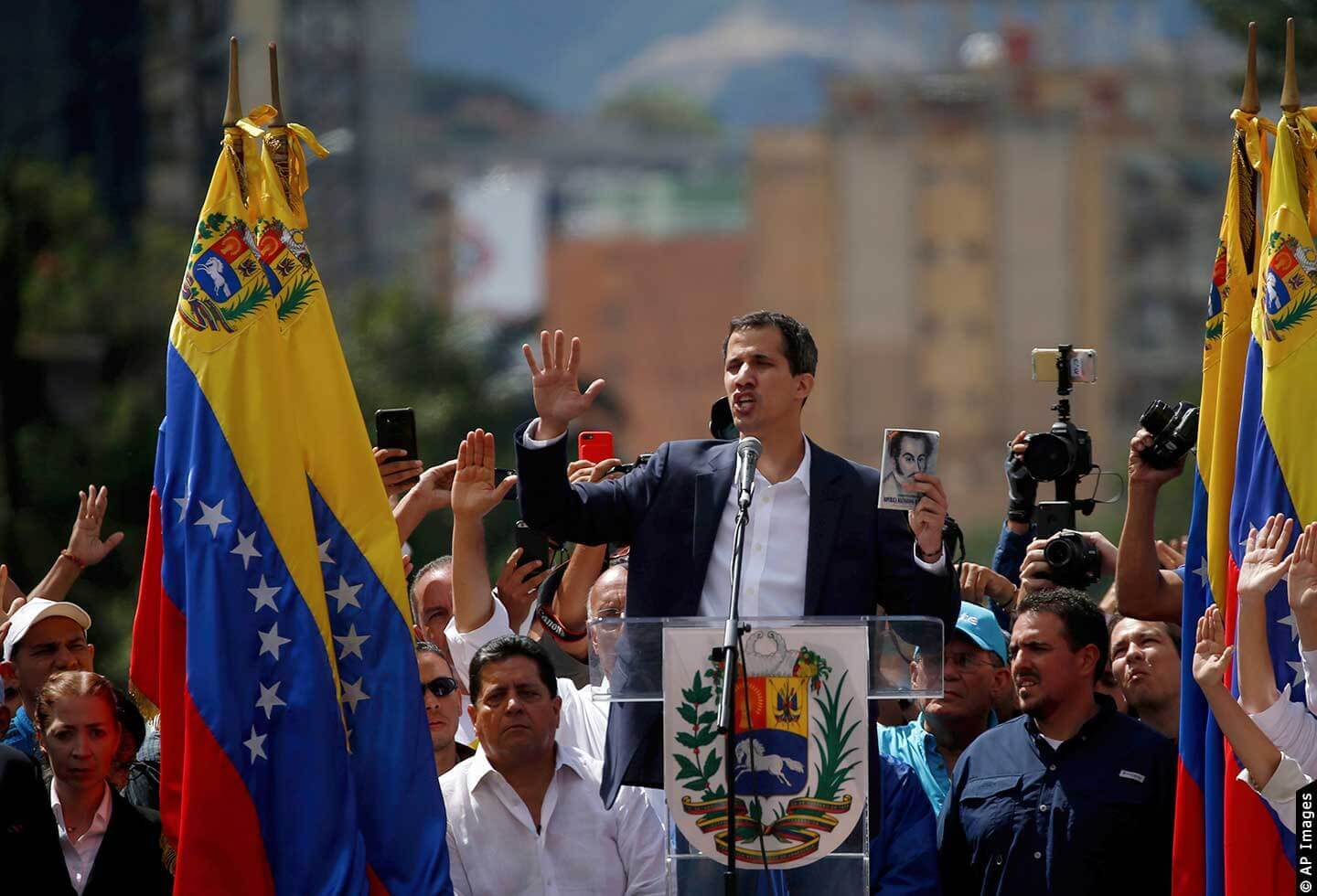On Tuesday, United States (US) Secretary of State Antony Blinken held a telephonic conversation with Venezuelan opposition leader Juan Guaidó, whom the US and over 50 other countries continue to recognise as the legitimate and interim leader of the country.
As per a statement released by US State Department spokesperson Ned Price, the pair discussed the “importance of a return to democracy in Venezuela through free and fair elections”. To this end, Blinken noted that Washington will continue to collaborate with “likeminded allies”—such as the European Union (EU), the Lima Group, the Organization of American States (OAS), and the International Contact Group—to “increase multilateral pressure and press for a peaceful, democratic transition”.
Guaidó, meanwhile, focused on securing humanitarian aid for a country that continues to be ravaged by hyperinflation, which has forced roughly 5.5 million citizens to emigrate from the country. Following his discussion with Blinken, Guaidó told an Argentinian news outlet that he had in fact spoken with both Blinken and Canadian Foreign Minister Marc Garneau “as part of the agenda of international alliances to rescue democracy in Venezuela”.
Since 2017, the US has levied various sanctions against officials within the Maduro administration as well as the state-owned oil company PDVSA. Consequently, PDVSA’s oil output fell from 1.911 million barrels per day (bpd) in 2017 to just 796,000 bpd in 2019. All of this has pushed Venezuelan exports to their lowest levels in almost 80 years. In fact, just this week, Bloomberg released a report that crude oil exports from the country decreased by 418,857 bpd, representing a 13% drop from January.
A combination of international sanctions and gross mismanagement and corruption within the ruling administration has resulted in an inflation rate that has surpassed 50,000,000%. All of this has left roughly 94% of the population living below the poverty line in a country that is now beset by unemployment, crime, and fuel, medicinal, and food shortages. In fact, a recent study revealed that a basket of basic goods in the country increased in price by 2,021% between December 2019 and December 2020.
Against this tense backdrop, President Nicolás Maduro has called on the US to withdraw sanctions in order to “improve our relations” and “make it one of respect, of mutual acknowledgement, [and] a relationship with a future”. Likewise, the new President of the National Assembly, Jorge Rodríguez, has said, “This new National Assembly is taking the broadest approach possible toward dialogue.” He even said that Venezuela is willing to discuss the release of the ‘CITGO 6’, six American oil executives who have been held in the country for over three years on arbitrary charges of corruption after being lured to Caracas under the false pretences of doing business with PDVSA.
The US, though, appears to be unwilling to engage in dialogue with the Maduro administration. The latest phone call with Guaidó builds on Blinken’s comments last month during his Senate confirmation hearing, when he said that the new administration will look to “more effectively target” sanctions on Venezuela, with the explicit aim of removing Maduro from power.
Blinken said, “We need an effective policy that can restore Venezuela to democracy, starting with free and fair elections,” and described Maduro as a “brutal dictator”. Biden, too, has previously called Maduro a “dictator”.
The Biden administration’s commitment to continuing the “maximum pressure” strategy employed by the Trump administration was further evidenced last week, when an anonymous White House official said that that the current government has plans to sanction Venezuela’s oil industry. The official remarked, “We are in no rush to lift sanctions,” adding, “If the regime undertakes confidence-building measures that show that they’re ready and willing to engage in real conversations with the opposition ... if they’re ready to take serious steps, then we will consider the alleviation of sanctions.”
Meanwhile, a group of both Republican and Democrat House lawmakers have urged the Biden administration to deploy a special envoy to Venezuela. In fact, Elliott Abrams fulfilled this role under the Trump administration after he was appointed in 2019, but left following Biden’s entry into the White House and has not been replaced since. The lawmakers wrote a letter to Secretary Blinken that read: “Venezuela is a failed state, ruled by an illegitimate and corrupt dictator who mistreats his people, undermines American interests and values, and fosters relationships with our adversaries, including China, Cuba, Iran, and Russia.” They added, “We believe this special envoy is necessary to help the Venezuelan people, and the government of interim-President Juan Guaidó, to return their country to democracy and prosperity.”
However, the State Department has turned down this request, saying, “At this time, we do not have any personnel moves to preview.”
Also on Tuesday, the European Union’s (EU) ambassador to Venezuela, Isabel Brilhante Pedros, departed from the country after President Nicolás Maduro ordered her to leave last week. Her expulsion was driven by the EU’s decision to levy sanctions against 19 Venezuelan government officials earlier in the week, which brought the number of Venezuelan officials the EU has sanctioned to 55.
Blinken Reiterates US Support for Regime Change in Venezuela During Call With Guaidó
US State Department spokesperson Ned Price said the pair discussed the “importance of a return to democracy in Venezuela through free and fair elections”.
March 4, 2021

IMAGE SOURCE: FERNANDO LLANO / APVenezuelan Opposition leader Juan Guaidó, whom the United States recognises as the legitimate and interim president of the country
